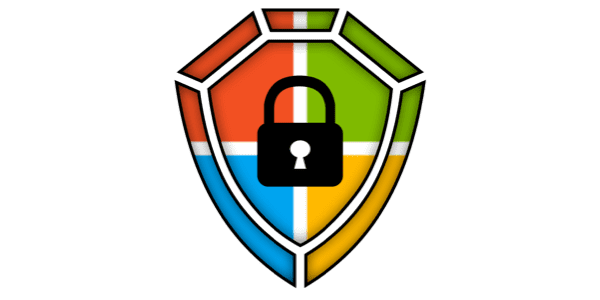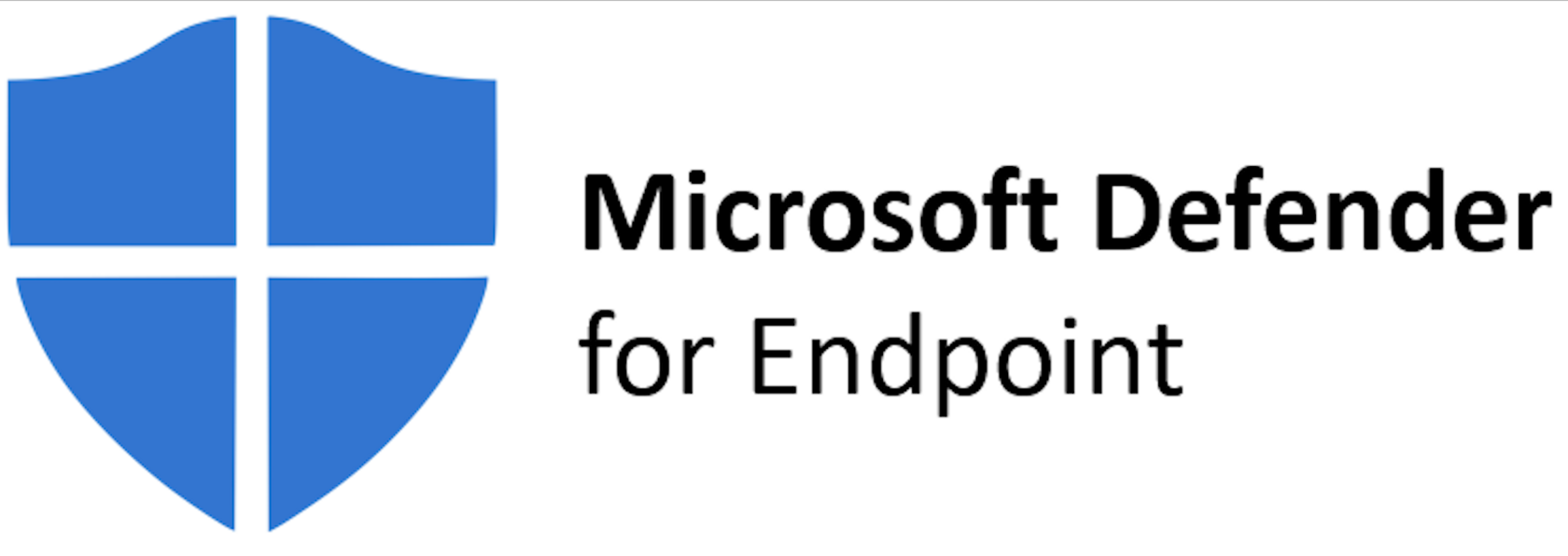Join our workshop in
🎉 New Year, New Career! 🎉
Get 20% Off Our Mid & Premium IT Packages with Code: NY2024
Get 20% Off Our Mid & Premium IT Packages with Code: NY2024
00:00:00:00
Days
Hours
Minutes
Seconds
Become a High-Paying In-Demand
Cyber Security Engineer
Cyber Security Engineer
Learn how to protect companies from online threats and keep their data safe in just 4 months.
Explore More About Course at a Career Consultation
IN COOPERATION WITH:



IDS/IPS






MS 365 Security






elastic
🇬🇧 English
Language
16.09.2024 - 24.01.2024
When
Online workshops, Self-paced practical assignments and materials
Learning format
4 months (160 hours)
Duration
18/30 seats
Seats available
Operating system fundamentals (Windows, Linux), Command line interface basics
Prerequisites
A Cyber Security Engineer is essential for protecting a company's digital assets and ensuring the safety of its information. This profession involves identifying security risks, implementing protective measures, and responding to security breaches.
With the increasing number of cyber threats, the demand for cyber security professionals is higher than ever
Job Security
High Earning Potential
Career Growth
Exciting and Dynamic Field
Cyber security experts are well-compensated for their skills and expertise
Stay engaged with constantly evolving challenges and technologies
Opportunities to advance into specialized roles or leadership positions
Why study
Cyber Security?
Cyber Security?
~2500€
Entry-level average pay
~4000€
A mid (2y+) average pay
33 500+
Opened positions in Europe
32%
Annual demand growth
AND
Our Course is
the Best Choice if You are...
the Best Choice if You are...
Unexperienced, but motivated
Relevant background isn't a prerequisite here.
Stay adamant, and you'll break into tech in no time!
Stay adamant, and you'll break into tech in no time!
Unable to study full time
Study with our support, but per your own schedule — whenever you find the time.
👩🏼💻
🏋🏻♂️
How you will learn?
01
03
Learn effectively with our project-based approach
Access and study materials prepared by the RangeForce team, available anytime.
Meet with expert mentors bi-weekly to deepen your understanding and find the best solutions.
Professional Content
Mentoring Sessions
02
04
Work on real-world projects from the first lesson, applying your knowledge immediately.
Build a competitive portfolio, earn a certificate, and be fully prepared for your new career.
Practical Assignments
Portfolio & Certification
6-8 hours per week
4 months of learning
Bi-weekly mentoring sessions
Learn in Just 6 Hours/Week

Learn on
Your Schedule
Your Schedule
Designed for busy professionals, our program fits your life.
Study on your timetable

Our carefully designed curriculum allows you to learn efficiently and effectively, dedicating only 6 hours per week to master cybersecurity.
Our program is tailored to accommodate busy professionals, providing a balance between work, personal life, and education through a reasonable workload and periodical vacations.
Choose the learning times that work best for you. Our program is flexible and allows you to learn at your preferred time.
Work-life-education balance

An experienced mentor will review your past experiences, skills, and give you step by step roadmap how to achive your goals.
Get FREE Career Consultation
Get a FREE career constulation
It takes around 30 minutes
Full Program
Overview
Overview

This module provides a comprehensive introduction to the foundational concepts of cybersecurity. It covers the basic principles, tools, and methodologies used to protect digital systems from various threats.
Module 1: Cybersecurity Foundations
Program:
- Introduction
- Network Security
- Log Management
- Security Operations
- Threats and Malware
- Endpoint Security
- Capstone
Module outcomes:
Students will gain a solid understanding of cybersecurity principles, network security, and the importance of log management. They will also learn to identify and mitigate various types of threats and vulnerabilities.
Students will gain a solid understanding of cybersecurity principles, network security, and the importance of log management. They will also learn to identify and mitigate various types of threats and vulnerabilities.
Tools you will learn:
Windows Event Log, Linux syslog, IDS/IPS, Firewall, EDR, SIEM.
Windows Event Log, Linux syslog, IDS/IPS, Firewall, EDR, SIEM.
Focused on Security Operations Center (SOC) fundamentals, this module equips learners with the skills needed to monitor and respond to security incidents. It covers the SOC environment, cyber threat landscape, and tools like SIEM.
Module 2: Cybersecurity Analysis Basics
Program:
- SOC Fundamentals
- Cyber Threat Landscape
- SIEM Essentials
- Incident Response Fundamentals
- Introduction to Cloud Security
- Capstone
Module outcomes:
Students will understand SOC operations, identify and analyze threats, and effectively use SIEM systems. They will also gain insights into incident response and cloud security basics.
Students will understand SOC operations, identify and analyze threats, and effectively use SIEM systems. They will also gain insights into incident response and cloud security basics.
Tools you will learn:
SIEM (Wazuh, Splunk, Microsoft Sentinel), SOC, incident response platforms.
SIEM (Wazuh, Splunk, Microsoft Sentinel), SOC, incident response platforms.
This module provides a comprehensive introduction to the foundational concepts of cybersecurity. It covers the basic principles, tools, and methodologies used to protect digital systems from various threats.
Module 3: Cybersecurity Analysis ADVANCED
Program:
- Network Forensics Basics
- Phishing Detection Basics
- Vulnerability Assessment Basics
- Ransomware Detection Basics
- Malware Analysis Basics
Module outcomes:
Learners will develop advanced skills in detecting and responding to phishing, malware, and ransomware. They will also be adept at conducting vulnerability assessments.
Learners will develop advanced skills in detecting and responding to phishing, malware, and ransomware. They will also be adept at conducting vulnerability assessments.
Tools you will learn:
Network forensics tools, phishing detection tools, vulnerability assessment tools.
Network forensics tools, phishing detection tools, vulnerability assessment tools.
This module introduces critical tools and technologies used by security engineers, including PowerShell, Linux, and Splunk. It focuses on the practical application of these tools in real-world scenarios.
Module 4: Tools for Security Engineers
Program:
- PowerShell Fundamentals
- Regular Expressions Fundamentals
- Linux Fundamentals
- Splunk Configuration
Module outcomes:
Students will become proficient in using PowerShell for automation, regular expressions for data parsing, and Linux for system administration. They will also learn to configure and use Splunk for data analysis.
Students will become proficient in using PowerShell for automation, regular expressions for data parsing, and Linux for system administration. They will also learn to configure and use Splunk for data analysis.
Tools you will learn:
PowerShell, Linux, Splunk, regular expressions.
PowerShell, Linux, Splunk, regular expressions.
This module covers advanced security techniques, including endpoint and perimeter protection, malware defense, and elastic configuration. It provides hands-on experience with sophisticated security strategies.
Module 5: Advanced Security Techniques
Program:
- Endpoint Protection
- Email Protection
- Perimeter Protection: FortiOS
- Malware Protection
- Elastic Configuration
Module outcomes:
Learners will master techniques for securing endpoints, email systems, and network perimeters. They will also gain skills in configuring security tools and systems.
Learners will master techniques for securing endpoints, email systems, and network perimeters. They will also gain skills in configuring security tools and systems.
Tools you will learn:
Endpoint protection tools, FortiOS, Microsoft Defender ATP, Elastic.
Endpoint protection tools, FortiOS, Microsoft Defender ATP, Elastic.
Focusing on incident response, this module trains students in handling and containing cybersecurity incidents. It covers strategic response techniques, ransomware incident response, and perimeter threats.
Module 6: Incident Response Strategies
Program:
- Incident Response: Strategic Handling and Containment
- Ransomware Incident Response
- Malware Incident Response
- Perimeter Threats: Detection & Response
- Incident Response to Persistence Mechanisms
Module outcomes:
Students will learn to develop and implement incident response strategies, manage ransomware incidents, and secure network perimeters. They will also be equipped to detect and respond to persistence mechanisms.
Students will learn to develop and implement incident response strategies, manage ransomware incidents, and secure network perimeters. They will also be equipped to detect and respond to persistence mechanisms.
Tools you will learn:
Incident response tools, malware analysis tools, perimeter security tools.
Incident response tools, malware analysis tools, perimeter security tools.

Secure Your Future with Our Employment Support
83%
of our students have gained career advancement
🤝🏻
Excel in interviews with expert guidance, peer practice, and stress-relief techniques.
Comprehensive Toolkit
Secure Your Future with Our Employment Support
Take advantage of one-on-one feedback during group sessions run by seasoned human resource professionals.
Personalized Guidance
We will assist you in developing a solid career plan, helping you stand out and secure your dream job.
Career Planning
With our support, you'll gain the confidence and skills needed to achieve your career goals in cybersecurity.
Skills Employers Looking For
Mentoring from
True Cybersecurity Experts
True Cybersecurity Experts
is a leading Estonian cybersecurity firm offering a wide range of offensive and defensive services. Cybertex mission is to safeguard digital assets and empower businesses with cutting-edge security solutions.
This program was developed by Cybertex Security and NexaLearn.
NexaLearn
is an expert in launching successful online academies like Cerebrum Hub, ITCrafters, and kood/Jõhvi. NexaLearn ensures an 80% student completion rate by transforming offline courses into engaging, effective online programs. With their state-of-the-art platform, you'll experience seamless learning, from content creation to course deployment and marketing strategies.
Cybersecurity expert
Alex Doronin
Alex, the Chief Information Security Officer at Admirals, leverages his extensive cybersecurity expertise to drive business success by achieving cyber resilience. With a strong background in IT project management and information security, he has a proven record of building robust information security systems. Additionally, Alex founded Cybertex Security, where he consults and advises on information security.
IT expert
Andres Gavriljuk
Skilled in managing remote teams, logistics automation, and financial technology solutions. Proven success in project management and implementation of complex IT systems.
Cybersecurity expert
Dmitri Buloitsik
Dmitri has over 20 years of IT experience, including 6 years in cybersecurity. He is certified in CompTIA CySA+ and excels in cybersecurity analytics and incident response. As a Cybersecurity Engineer at Kuehne + Nagel, Dmitri played a key role in incident handling, threat hunting, and implementing SOAR tools, while also contributing to security governance, risk management, and vulnerability assessments.
Get the Full Course Program at a Personal Career Consultation
Get a FREE career constulation
Vacancies I can apply for:
Diploma of professional reskilling
Your Resume will be a Complete Match for Cybersecurity Engineer
I can work with following tools:
I know how to:
- Identify and Mitigate Security Risks
- Conduct Penetration Testing
- Respond to Security Incidents
- Implement Security Controls
- Develop and Enforce Security Policies
- Analyze Cybersecurity Threats and Trends
- Secure Cloud and Network Infrastructure
- Conduct Cybersecurity Audits

- Cyber Security Engineer
- Information Security Specialist
- Network Security Engineer
- Security Operations Analyst
- Risk and Compliance Analyst
IDS/IPS






MS 365 Security






elastic
Our Students Work at These Companies

























4.4
4.7
237 Reviews
28 Reviews
5.0



56 Reviews
What Employers Say About Our Students

Lavrenti Tsudakov
CEO at Income Marketplace
CEO at Income Marketplace
Our collaboration with Cerebrum Hub's QA interns exceeded our expectations. Their interns brought fresh perspectives and rigorous testing methodologies that significantly enhanced our platform's reliability and user experience. Their proactive approach in not only identifying but also resolving issues has been remarkable. We're genuinely impressed by the dedication and skill level of the interns and the QA leads.
Gleb Zamyslovsky
CEO at Bonsay Technologies
CEO at Bonsay Technologies
The QA interns have been instrumental in refining our software solutions, offering thorough testing and insightful feedback that propelled our development forward. Their contribution extended beyond conventional bug reporting, bringing valuable enhancements to our UI and feature set. The discipline and creativity of the interns have been invaluable to our progress.
Oleg Shvaikovsky
Board Member at Nortal
Board Member at Nortal
We've been highly impressed with the graduates from Cerebrum Hub. They come well-prepared with a strong foundation in cybersecurity and practical experience. Their training clearly emphasizes both technical and soft skills, allowing them to quickly adapt and contribute effectively. We're excited to continue hiring from Cerebrum Hub and look forward to more skilled professionals joining our team.
Where to Start? Here
2
4
5
6
Register
Pay in a convenient for you way
Learn at your own
pace
pace
Get a free career
consultation
consultation
Choose a course
Done
We can help you gather paperwork and get your Education TAX Refund after course graduation. You will save up to 290€
Or you only pay 265€ in 6 payments
Want to learn more about all of your tuition payment options?
Profession + Career Assist
We'll refund 22% of tuition fees
💸
Available for every Package you choose:
✅
Cybersecurity Engineer Profession
1590€
1290€
16 weeks of learning
Or you only pay 215€ in 6 payments
All 6 modules
Practical assignments
16 weeks of learning
All 6 modules
Practical assignments
Bi-weekly mentoring
Feedback on mock interviews
Perpetual access to course materials
Support and Feedback from mentors
Career center counseling
Assistance in preparing a resume and portfolio
Interview technique training
-25%
-25%
🔥 BONSUS: Career Module
Bi-weekly mentoring
Job search training
Payment Options
Our goal is to provide career-changing opportunities to anyone who desires them, which is why we offer flexible payment options to suit different needs and circumstances.
Payment
Options
Options
Our goal is to provide career-changing opportunities to anyone who desires them, which is why we offer flexible payment options to suit different needs and circumstances.
Pay once before the beginning of the program
No additional fees will be applied. The service is provided in cooperation with InBank or Esto.
The available period from 12 - 72 months. The service is provided in cooperation with InBank or Esto.
In partnership with BCS Koolitus AS, Cerebrum Hub presents a special training opportunity for the unemployed, supported by Töötukassa. Please proceed to this page and register.
International students can pay through a subscription plan, divided up to six equal installments.
Pay once before the beginning of the program
No additional fees will be applied. The service is provided in cooperation with InBank or Esto.
The available period from 12 - 72 months. The service is provided in cooperation with InBank or Esto.
In partnership with BCS Koolitus AS, Cerebrum Hub presents a special training opportunity for the unemployed, supported by Töötukassa. Please proceed to this page and register.
International students can pay through a subscription plan, divided up to six equal installments.
CEREBRUM HUB
Students' Reviews
Students' Reviews
Are you considering enrolling in one of our courses or programs? Hear from our current students about their experiences and get a glimpse of what you can expect.

Landed the job in Askend in 3 months
Landed the job in CGI in 4 months
Landed the job in Yolo Group in 3 months
What Also Students Said About Us?

If I could bring back time, I would still choose Cerebrum Hub for my career change. The course was very well structured; I loved so much learning with avatars (good job guys!). From day one we started doing testing and this practical approach is very good for learning and gaining knowleadge.
If I could bring back time, I would still choose Cerebrum Hub for my career change.
If I could bring back time, I would still choose Cerebrum Hub for my career change.
★★★★★
I have already done the first two projects and I must say that the QA Tester course is very interesting. Professional mentors and cooperative teammates boost enthusiasm.
In the beginning, of course, I was a bit modest because my English language skills are at a self-taught level. I immediately got a good English practice with the first team. In my written works, I also use google translator, but new phrases and words just stick in your mind.
In the beginning, of course, I was a bit modest because my English language skills are at a self-taught level. I immediately got a good English practice with the first team. In my written works, I also use google translator, but new phrases and words just stick in your mind.
★★★★★
Very well structured learning experience. I would definitely recommend this course to anyone who is interested in IT or wanting to change career.
I liked learning in teams with Scrum method.
All the assignments were understandable and when there were any questions then it was possible to ask them in weekly meetings or in questions board.
I liked learning in teams with Scrum method.
All the assignments were understandable and when there were any questions then it was possible to ask them in weekly meetings or in questions board.
★★★★★



Before joining Cerebrumhub, I had a basic understanding of IT, but this course took my knowledge to a whole new level. The curriculum was well-structured, and I particularly appreciated the hands-on approach, which helped me gain practical experience in real-world scenarios. The instructors were knowledgeable and approachable, always ready to help with any questions. This course truly equipped me with the skills I needed to start my career in cybersecurity.
Victoria Lert
★★★★★
Course is the perfect starting point for anyone looking to enter the field or switch careers into cybersecurity. The mentors are incredibly supportive and knowledgeable, making complex topics accessible and engaging. The course covers a wide range of essential tools and techniques, and the real-world projects provided invaluable experience. I highly recommend this course to anyone serious about a career in cybersecurity.
Robert Lambert
★★★★★
It was a well-rounded learning experience, offering both theoretical knowledge and practical skills. Working on real-life security challenges was particularly beneficial, and the bi-weekly mentoring sessions helped me clarify doubts and deepen my understanding. The supportive community and the emphasis on practical learning made this course an excellent choice for my career development. I'm grateful for the skills and confidence I've gained here.
Robert Metsatalu
★★★★★
VL
RL
Cyber SEcurity engineer
Cyber SEcurity engineer
Cyber SEcurity engineer
FAQ
Here are some Frequently Asked Questions. Visit full FAQ page to explore more questions.
FAQ
Here are some Frequently Asked Questions.
Visit full FAQ page to explore more questions.
Visit full FAQ page to explore more questions.
Entry-level Cyber Security Engineers typically earn around €2500 per month. With experience, salaries can rise to an average of €4000 per month for mid-level positions (2+ years).
Anyone with a passion for cybersecurity and a willingness to learn can become a Cyber Security Engineer. Some prior IT knowledge, particularly in operating system fundamentals and command line interface basics, is required.
Cybersecurity is a rapidly growing field with high demand, offering excellent job security, competitive salaries, and opportunities for continuous learning and career advancement.
A typical day involves monitoring security systems, responding to incidents, conducting threat assessments, and implementing security measures. It also includes collaborating with other IT professionals and staying updated on the latest cybersecurity trends.
The program includes bi-weekly online workshops every second Tuesday, self-paced practical assignments, and materials. You will also have ongoing support and guidance through chat with a mentor.
We offer flexible payment options, including single fixed fees, installment plans over 3, 6, or 12 months, and extended payment options up to 60 months for Baltic countries.
While this program requires some prior IT knowledge, particularly in operating system fundamentals and command line interface basics, we welcome anyone eager to learn.
Yes, age is not a barrier. Our program is suitable for anyone passionate about transitioning into a cybersecurity career, regardless of age.
Entry-level Cyber Security Engineers typically earn around €2500 per month. With experience, salaries can rise to an average of €4000 per month for mid-level positions (2+ years).
Anyone with a passion for cybersecurity and a willingness to learn can become a Cyber Security Engineer. Some prior IT knowledge, particularly in operating system fundamentals and command line interface basics, is required.
Cybersecurity is a rapidly growing field with high demand, offering excellent job security, competitive salaries, and opportunities for continuous learning and career advancement.
A typical day involves monitoring security systems, responding to incidents, conducting threat assessments, and implementing security measures. It also includes collaborating with other IT professionals and staying updated on the latest cybersecurity trends.
The program includes bi-weekly online workshops every second Tuesday, self-paced practical assignments, and materials. You will also have ongoing support and guidance through chat with a mentor.
We offer flexible payment options, including single fixed fees, installment plans over 3, 6, or 12 months, and extended payment options up to 60 months for Baltic countries.
While this program requires some prior IT knowledge, particularly in operating system fundamentals and command line interface basics, we welcome anyone eager to learn.
Yes, age is not a barrier. Our program is suitable for anyone passionate about transitioning into a cybersecurity career, regardless of age.
Want to learn more about all of your tuition payment options?


